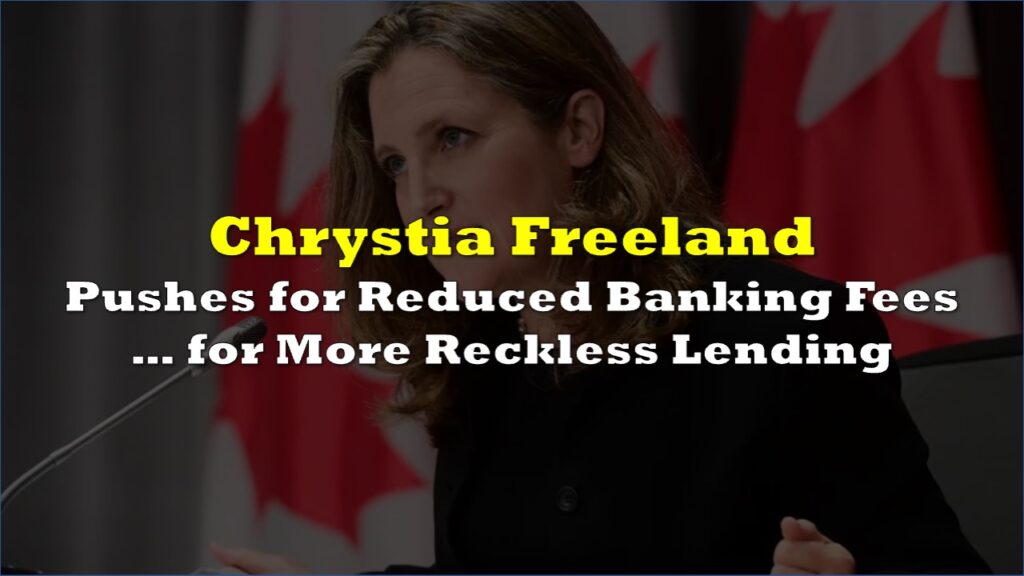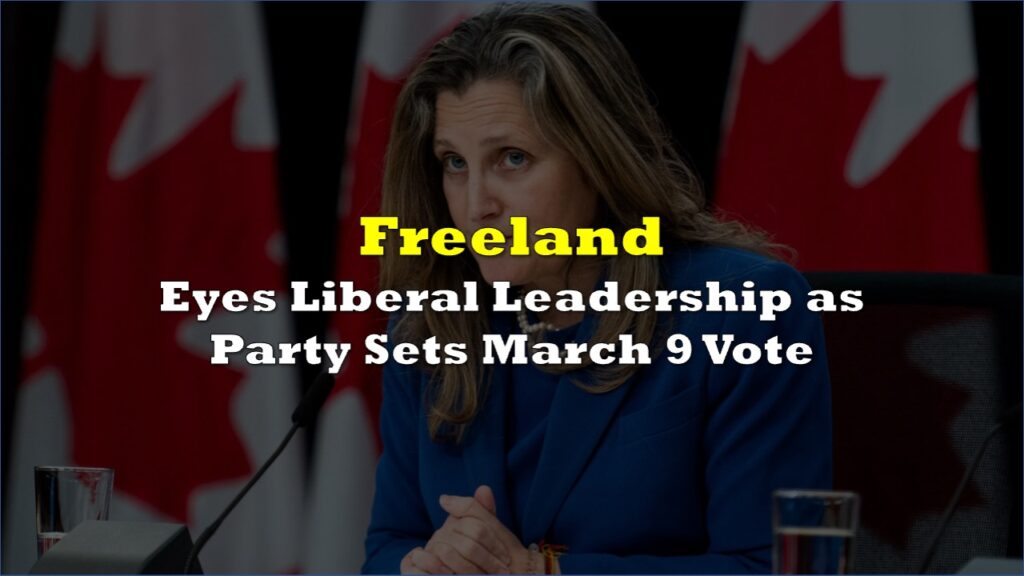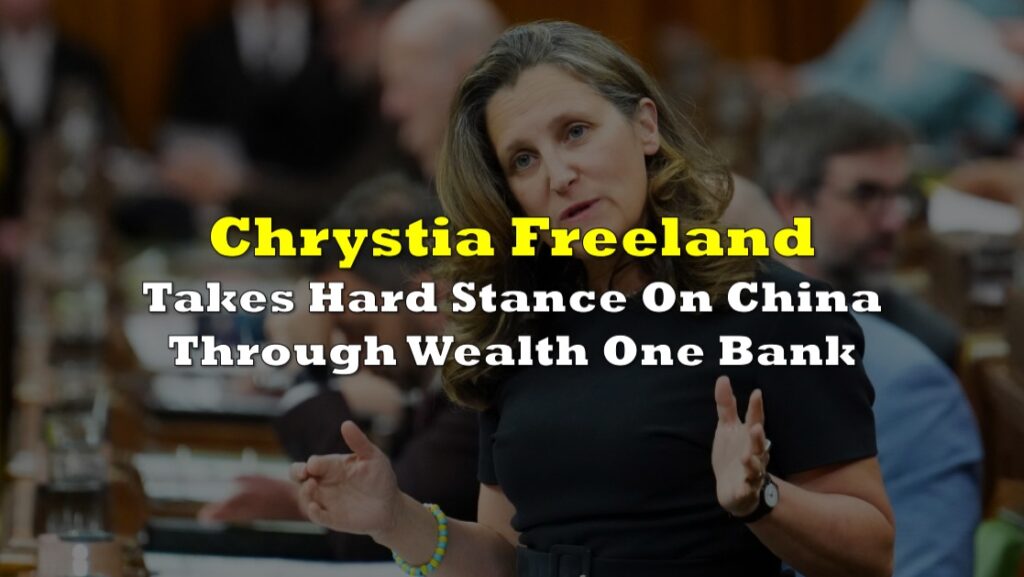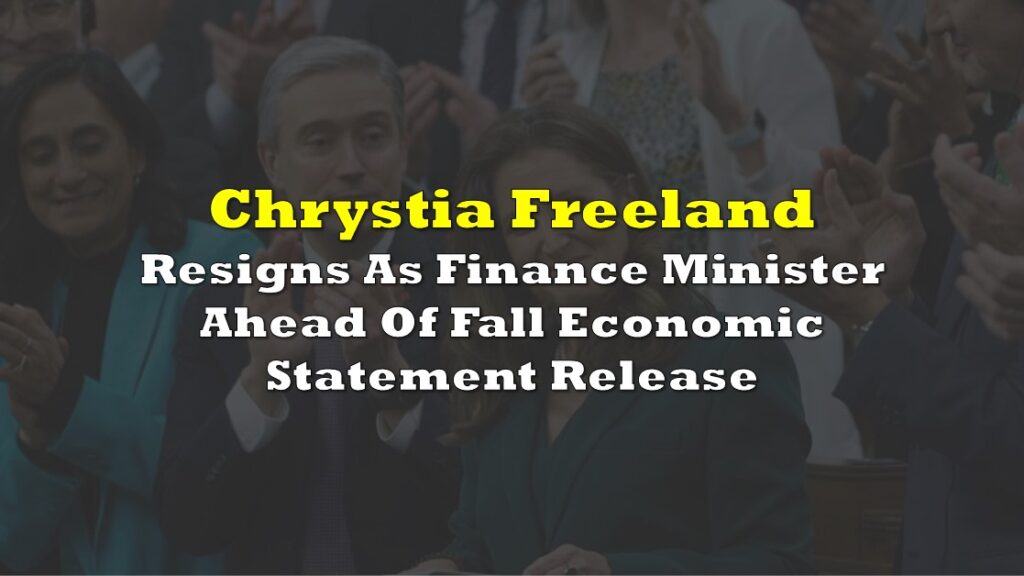In a significant policy reversal, Finance Minister Chrystia Freeland is expected to announce the cancellation of a promised $250 rebate for nearly 19 million working Canadians. The initiative, known as the “Working Canadians Rebate,” was originally proposed as part of the Liberal government’s affordability measures to help citizens cope with inflation.
Sources close to the government revealed that the measure will be absent from Monday’s fiscal update, marking a shift in the government’s spending priorities.
The proposed rebate aimed to distribute $250 cheques to Canadians earning less than $150,000 annually, at an estimated cost of $4.68 billion. However, the plan struggled to gain parliamentary support. Opposition parties, including the New Democratic Party and the Bloc Québécois, withheld their backing, arguing that the measure excluded key demographics such as seniors, individuals with disabilities, and injured workers. Expanding the rebate to include these groups could have added an estimated $2 billion to its total cost.
NDP’s Jagmeet Singh reiterated his party’s stance last week, stating, “If we are going to talk about affordability, we must ensure the most vulnerable members of society are not left out.” Without the necessary parliamentary support, the Liberal government has reportedly opted to shelve the measure, at least for now.
Liberal tension
Freeland’s decision to scrap the rebate reflects her cautious approach to government spending, a position that has reportedly put her at odds with Prime Minister Justin Trudeau. The rebate was seen as originating from the Prime Minister’s Office, which also introduced a two-month Goods and Services Tax (GST) holiday starting in December. While the GST holiday received a lukewarm response, the rebate’s exclusion from Monday’s fiscal update signals Freeland’s influence in prioritizing fiscal restraint.
READ: Freeland’s and Trudeau’s Offices Clash Over GST Holiday Plan
Freeland’s unease with the proposal was evident during a recent press conference where she appeared visibly emotional when questioned about internal tensions. Such strain is reminiscent of the high-profile fallout between Trudeau and former Finance Minister Bill Morneau, who resigned in 2020 amid disagreements over COVID-19 relief spending. Speculation about Freeland’s future in the role has grown, with reports suggesting Mark Carney, former Governor of the Bank of Canada, could be tapped as her replacement.
Public reaction to the affordability package, including the rebate and GST holiday, has been tepid. A recent Postmedia-Leger poll revealed that 70% of Canadians viewed the measures as a ploy to gain voter support rather than meaningful solutions to inflation. Only 20% believed the initiatives would provide genuine relief, with Liberal Party support declining in the weeks following the announcement.
Freeland faces mounting pressure to address Canada’s economic challenges, including rising deficits. While she previously committed to keeping the 2023/24 and 2024/25 deficits under $40 billion, sources suggest the figures could balloon to $60 billion. The fiscal update is expected to provide clarity on the government’s spending trajectory, with Freeland assuring Bloomberg last week that the debt-to-GDP ratio would continue to decline, despite rising deficits.
The decision to pull back on the $250 rebate could allow Freeland to redirect funds toward more targeted economic initiatives. On Friday, she announced a $1.9 billion expansion of the Scientific Research and Experimental Development tax incentive over six years and an additional $1 billion for the Venture Capital Catalyst Initiative. These measures aim to foster innovation and support mid-sized Canadian companies. Another $45 billion program to build artificial intelligence data centers, co-funded by Canadian pension funds, was also unveiled.
“We need to ensure that every dollar spent creates lasting value for Canadians,” Freeland said during a press conference in Toronto.
If Monday’s fiscal update proves to be Freeland’s final act as finance minister, it will underscore her attempt to balance fiscal prudence with targeted investments. However, the speculation surrounding a potential cabinet shuffle casts uncertainty on her political future.
For now, Canadians expecting a rebate will have to adjust their expectations as the government recalibrates its approach to affordability.
Information for this story was found via the National Post and the sources and companies mentioned. The author has no securities or affiliations related to the organizations discussed. Not a recommendation to buy or sell. Always do additional research and consult a professional before purchasing a security. The author holds no licenses.









